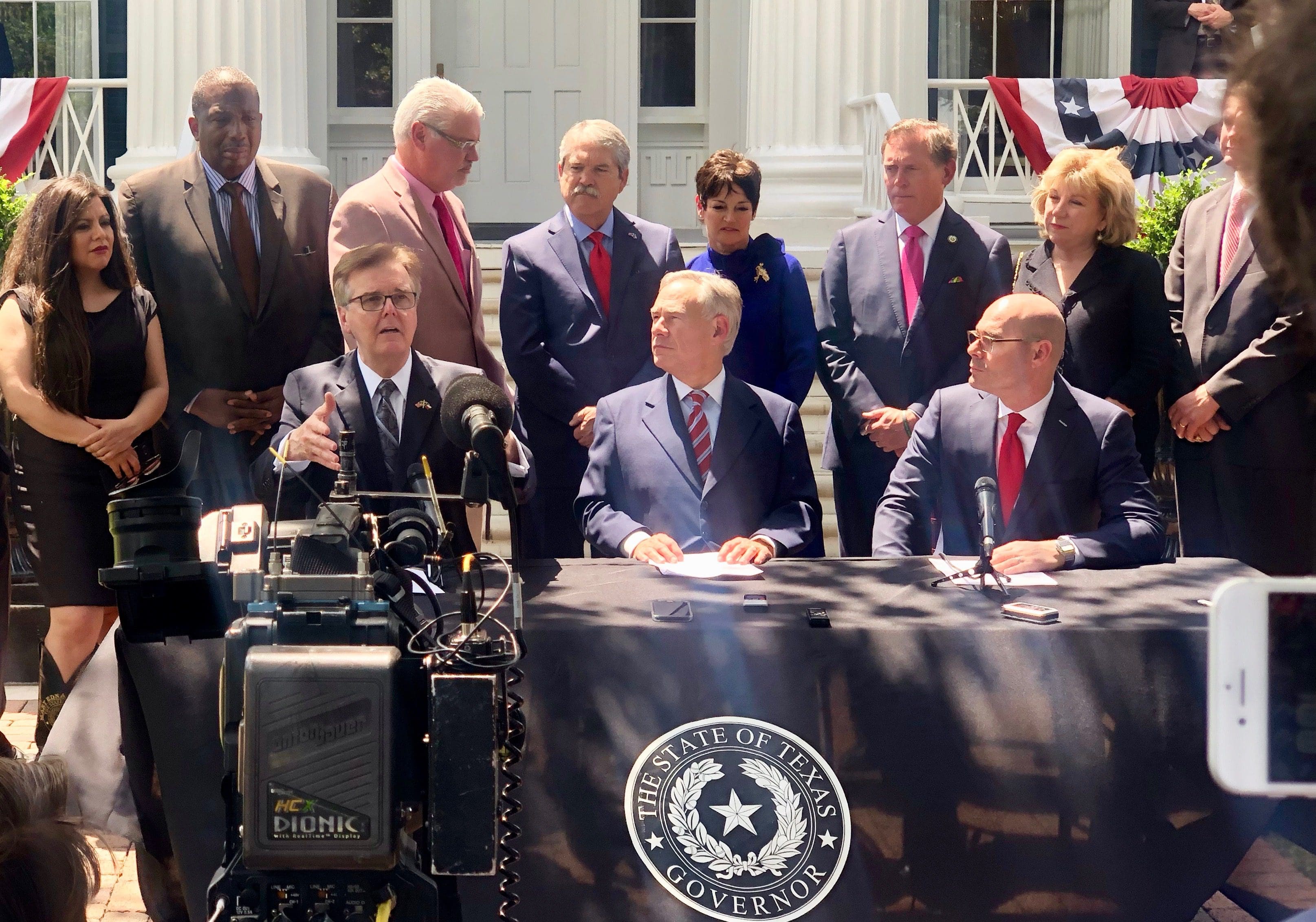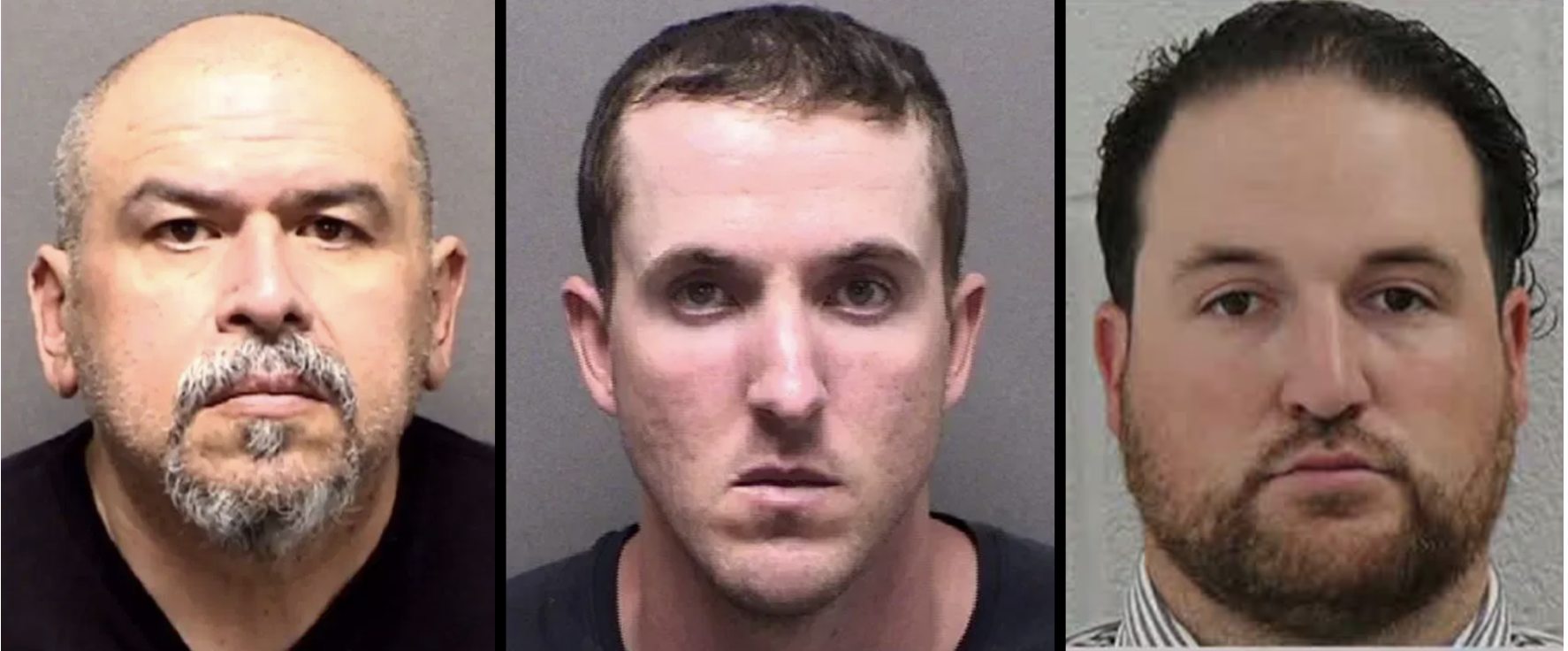With just days left in the 86th legislative session, Texas’ “Big Three” leaders—Gov. Greg Abbott, Lt. Gov. Dan Patrick, and Speaker of the House Dennis Bonnen—announced a compromise had been reached on school spending, property tax reform, and property tax relief.
When House Bill 3, omnibus legislation billed as school finance reform and property tax relief, passed the Texas House in March, it only contained around $2.7 billion for tax rate compression, a small amount considering the state’s nearly $10 billion in expected excess revenue.
When the bill reached the Senate, lawmakers in that chamber worked to nearly double the amount of relief in the bill, without increasing the state sales tax—a short-lived proposal from Abbott, Patrick, and Bonnen.
For the past couple weeks, the bill has been in conference committee, with members from both chambers hammering out the details of the final proposal.
Taxpayers, unhappy with the miniscule amount of relief originally proposed, demanded the Republican-led legislature up the amount of relief provided in the bill, forcing lawmakers to up the ante.
Though the bill has yet to be revealed, the three statewide leaders told members of the media what they considered to be a few highlights of the bill that will come out of the conference committee and before lawmakers in the 86th Legislature’s final four days.
“It lowers school property tax rates by an average of eight cents in 2020 and 13 cents in 2021,” said Abbott. “It provides an additional 2.5 percent tax compression starting in 2021. What that means is that it will provide additional tax relief in years going forward.”
“We are capping the amount that your school taxes can grow to two and a half percent,” Patrick said. “It will take place ‘cause we’ll have to roll out as we get to our calendar, our school year, but when fully enforced, it’s a dramatic cut to your taxes.”
“We are capping cities and counties at three and a half percent without a vote of the people,” Patrick added. “So we’re giving people a say in their local government tax policies on their property, whether they’re a homeowner or a business owner, in a way they have never had.”
Patrick also conceded that, under the plan, property taxes would continue to go up in the state, but that the rate at which they go up would now be capped at 2.5 or 3.5 percent.
“But you have been seeing your property taxes go up six, seven, eight, nine percent a year for businesses. Fifteen percent, twenty percent. We’re bringing that down to two and a half percent for schools and three and a half percent for cities and counties.”
That 2.5 percent cap on school district tax increases, however, would not go into effect until 2021.
Though the bill has not been made publicly available yet, materials distributed at the press conference claim that the plan includes $4.5 billion for increased school spending, over $5 billion in property tax relief, $2 billion for teacher pay raises, and $3.6 billion for recapture, or Robin Hood, reduction.
According to Bonnen, eliminating Robin Hood would be impossible.
“We can’t completely eliminate recapture because that would create an inequitable system,” he said.
“We are funding districts in education no longer on the basis of the wealth of the school district, but on the needs of our individual students,” Abbott said of the school finance portions of the bill.
With lawmakers now providing roughly half of the state’s $10 billion surplus to new spending, upon the plan’s approval, property tax relief will be appropriated with what’s left.






